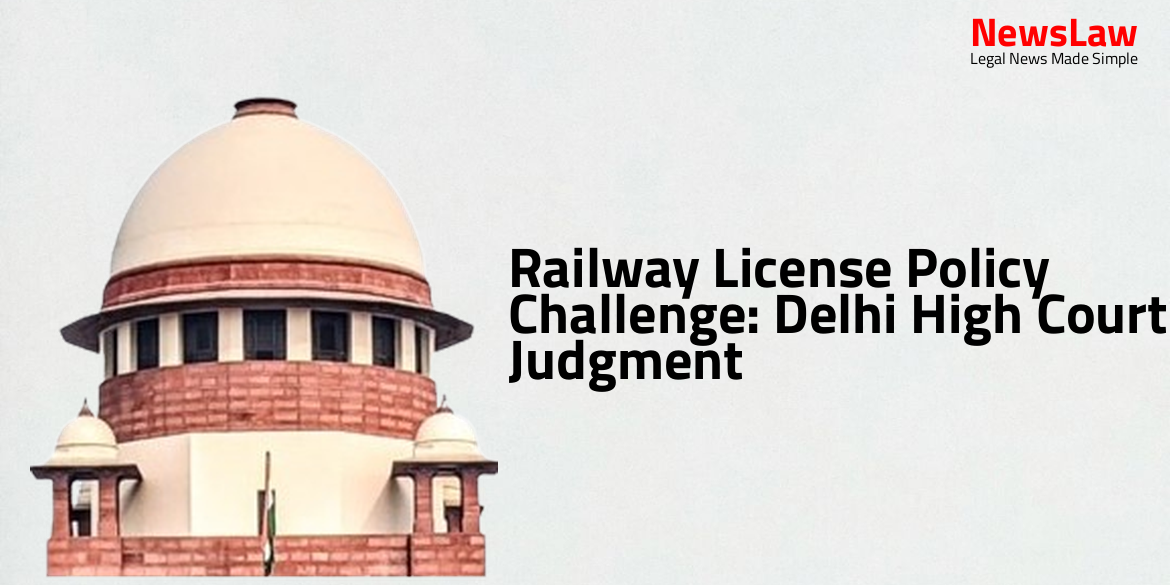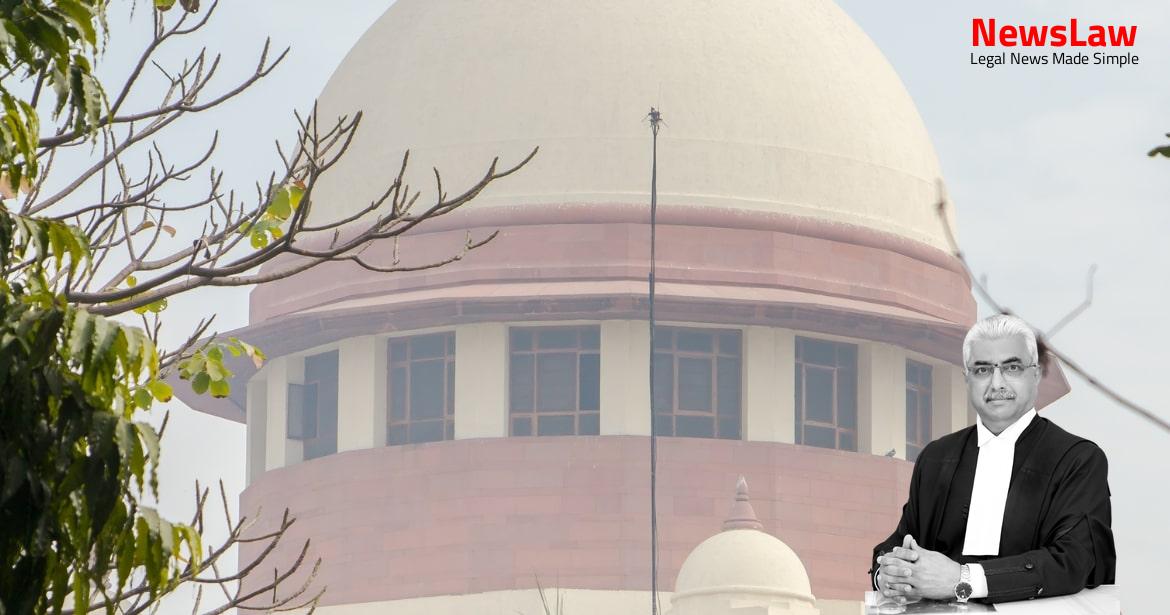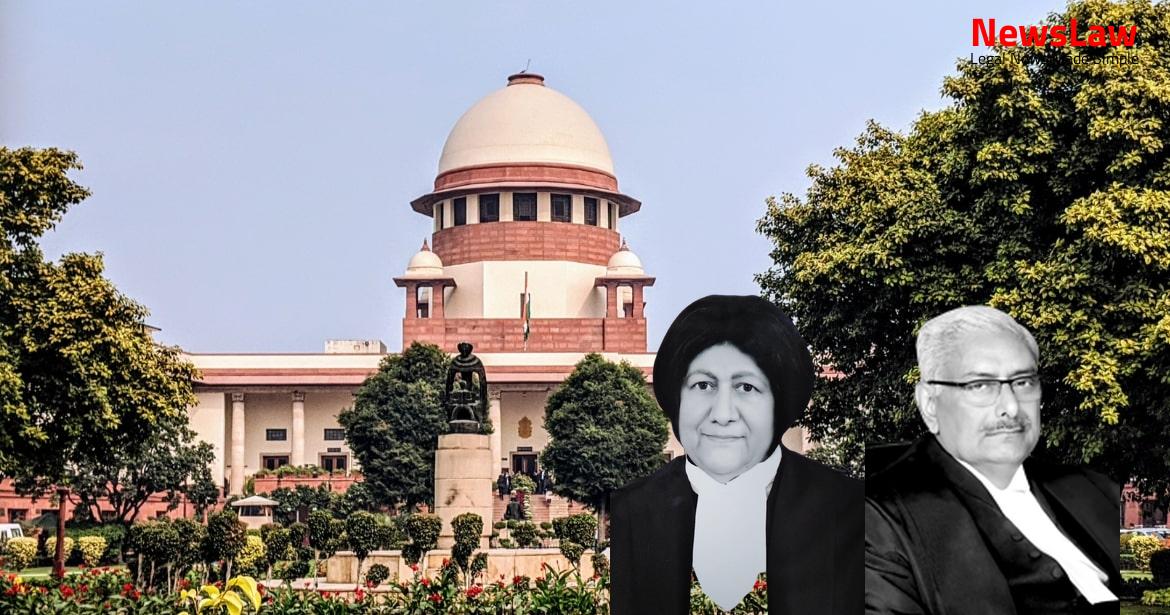Delve into the intricacies of the High Court’s jurisdiction in contractual disputes, as explored in a recent legal case. The court’s legal analysis, guided by established principles, sheds light on the complexities of disputes between state instrumentalities and private parties. This blog post dissects the nuanced approach adopted by the court, providing insights into the legal framework governing such matters.
Facts
- Setting up of joint venture ‘KEMTA’ by the appellant and EMTA.
- Dispute between the respondents and the appellant regarding deductions for washing charges based on CAG quantification.
- Demand letters impugned in Writ Petition Nos. 2995-2996 of 2016 before the High Court of Karnataka.
- Appellant allotted coal mines by the Union of India for captive consumption for thermal power projects in Karnataka.
- CAG report for the year ending March 2013 highlighted minimum quantity of coal rejects should be 10% of total production, valuing Rs. 52,37,00,000.
- Appeal arising from a judgment dated 24.03.2016 by the High Court of Karnataka allowing writ petitions by respondents.
- Contracts entered by the three companies for coal mine development and supply.
- Writ petitions challenged adverse decisions by the appellant regarding coal procurement for thermal power projects in Karnataka.
- Appellant objected to CAG report on coal rejects quantification, insisted on actual quantity sent to washery and dispatched to power stations post-processing.
- Demand for reimbursement of Rs. 52,37,00,000 from KEMTA based on CAG report.
- Respondents challenged deductions in Writ Petition Nos. 2997 and 2998 of 2016.
- Respondents sought refund of Rs 59.78 crores with 18% interest from 30.06.2012.
- High Court of Karnataka heard the writ petitions together.
- High Court of Karnataka allowed the writ petitions and directed certain actions.
Also Read: Balancing Power and Transparency: Electoral Bonds Struck Down, Disclosure Mandated
Arguments
- Appellant filed appeal via special leave under Article 136 of the Constitution.
- Primary submission of the appellant’s counsel is that the High Court granted relief without properly adjudicating disputes or appreciating facts.
- Learned counsel for the respondents supports the impugned judgment
- No grounds are made out by the appellant for this Court to interfere
- Exercise of powers under Article 136 of the Constitution is not warranted
Also Read: Recall of Resolution Plan Approval: Legal Analysis
Analysis
- Appellant initially raised objections to CAG report’s quantification of coal rejects
- Later demanded reimbursement based on the same CAG report it objected to
- Appellant’s change of stand on High Court’s discretion not sufficiently explained
- Dispute started almost a decade ago based on 2013 CAG report for a tender from 2002
- Agreements between parties do not mention deductions for washing charges
- Writ petitions may be maintainable in contractual disputes with state instrumentality
- High Courts have discretion on whether to entertain such writ petitions
- High Courts must consider principles while deciding on writ jurisdiction in contractual disputes between a State and a private party.
- Cited cases outlining principles include ABL International Ltd. v. Export Credit Guarantee Corpn. of India Ltd. and Joshi Technologies International Inc. v. Union of India.
- The Court refrains from delving into the appropriateness of High Court’s writ jurisdiction exercise in the current case due to its unique circumstances.
- Material presented does not warrant interference with the judgment passed by the High Court under Article 136 of the Constitution.
- No specific method for washing coal was specified.
- No evidence provided by the appellant regarding any issues with the quality of coal supplied by KEMTA.
- The impugned order indicates that coal from KEMTA was used by the appellant for electricity generation in thermal power plants.
Decision
- The Civil Appeals filed by the appellant are dismissed.
Case Title: KARNATAKA POWER CORPORATION LTD. Vs. EMTA COAL LTD. (2022 INSC 607)
Case Number: C.A. No.-005401-005404 / 2017



